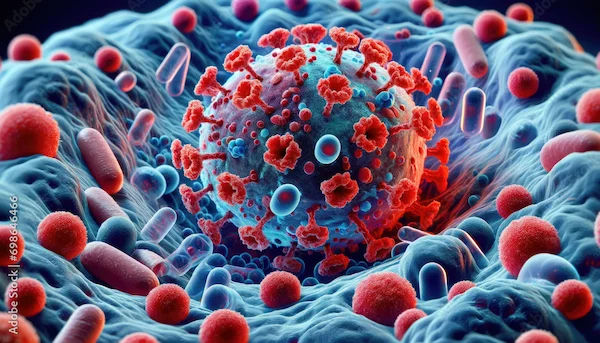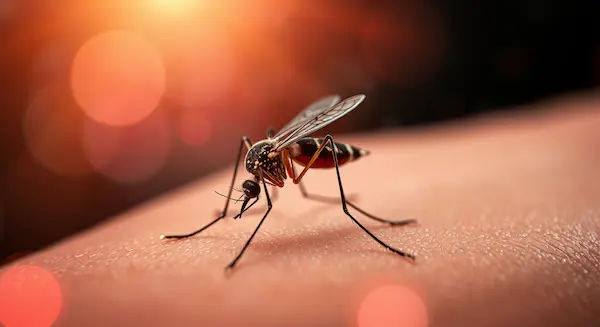Benefits of Parijat
Discover the health benefits of Parijat (Night Jasmine), a powerful Ayurvedic herb known for its anti-inflammatory, antipyretic, and immune-boosting properties. Learn how it supports respiratory health, joint pain relief, and overall wellness.

Written by Dr.Sonia Bhatt
Last updated on 3rd Jul, 2025

Introduction
In the world of natural remedies, Parijat, also known as the "Night-flowering Jasmine", has been treasured for centuries in Ayurveda for its incredible health benefits. This beautiful plant, with its fragrant white flowers and orange stems, is more than just an ornamental addition to gardens. It’s a powerhouse of medicinal properties. If you're looking for a natural way to boost your health, Parijat might be the answer. Let’s explore its benefits, how it can help with common health issues, and simple ways to incorporate it into your daily routine.
What is Parijat?
Parijat is a small tree native to Southeast Asia, commonly found in India, Nepal, and Thailand. Its flowers bloom at night and fall by morning, giving it the name "Night-flowering Jasmine." In Ayurveda, Parijat is known as "Harsingar" and is used for its anti-inflammatory, pain-relieving, and immune-boosting properties.
Key Health Benefits of Parijat
Key health benefits of parijat:
1. Relieves Joint Pain and Arthritis
Parijat leaves and flowers have strong anti-inflammatory properties, making them an excellent natural remedy for joint pain, arthritis, and muscle stiffness. Applying Parijat leaf paste or consuming its decoction can help reduce swelling and discomfort.
2. Boosts Immunity
Rich in antioxidants, Parijat helps strengthen the immune system, protecting the body from infections and seasonal illnesses like colds and flu. A warm tea made from Parijat leaves can be a great immunity booster.
3. Aids Digestion
Parijat is known to improve digestion and relieve stomach issues like bloating, constipation, and indigestion. Drinking Parijat leaf tea can help detoxify the digestive system and promote gut health.
4. Fights Fever and Infections
Traditionally, Parijat has been used to treat malaria, dengue, and viral fevers due to its antipyretic (fever-reducing) and antimicrobial properties. A decoction made from its leaves can help lower body temperature and fight infections.
5. Supports Respiratory Health
Parijat is beneficial for respiratory conditions like asthma, bronchitis, and cough. Its expectorant properties help clear mucus and ease breathing.
6. Promotes Skin Health
Parijat leaves and flowers have antibacterial and antifungal properties, making them useful for treating skin infections, acne, and wounds. Applying Parijat leaf paste can help soothe irritated skin and promote healing.
7. Reduces Stress and Anxiety
The fragrance of Parijat flowers has a calming effect on the mind, helping reduce stress and anxiety. Drinking Parijat tea or inhaling its aroma can promote relaxation and better sleep.
8. Helps Manage Diabetes
Parijat may help regulate blood sugar levels, making it beneficial for people with diabetes. However, it’s important to consult a doctor before using it as a supplement.
Consult Top Specialists for Personalised Usage Tips
How to Use Parijat for Health Benefits?
Ways to use parijat for health benefits:
1. Parijat Tea
Boil 5-6 Parijat leaves in water for 5-10 minutes.
Strain and drink warm with honey (optional).
Best for immunity, digestion, and fever relief.
2. Parijat Leaf Paste for Joint Pain
Crush fresh Parijat leaves into a paste.
Apply to affected joints for relief from pain and inflammation.
3. Parijat Flower Water for Skin
Soak Parijat flowers in water overnight.
Use the water to wash your face for glowing, infection-free skin.
4. Parijat Decoction for Fever
Boil Parijat leaves in water until reduced to half.
Strain and drink in small doses to reduce fever.
Precautions & Side Effects
While Parijat is generally considered safe when used in moderation, certain precautions should be observed:
Pregnancy: Pregnant women should avoid using Parijat, as it may stimulate uterine contractions and potentially pose a risk during pregnancy.
Dosage: Excessive consumption of Parijat, whether in tea, powder, or extract form, may lead to side effects such as nausea, dizziness, or gastrointestinal discomfort.
Medical Conditions: Individuals with chronic conditions such as diabetes, arthritis, or liver disorders should consult a qualified healthcare professional before incorporating Parijat into their health regimen. It may interact with ongoing medications or influence blood sugar levels.
As with all herbal remedies, it’s essential to follow appropriate dosages and seek medical guidance when in doubt to ensure safe and effective use.
Conclusion
Parijat (Night Jasmine) is more than just a fragrant flowering plant—it is a potent natural remedy with a rich history in traditional medicine. From easing joint pain and boosting immunity to aiding respiratory health and managing fevers, its wide-ranging benefits make it a valuable addition to holistic wellness routines. Whether consumed as a tea, applied topically, or used in Ayurvedic formulations, Parijat offers gentle yet effective support for overall health. As with any herbal remedy, it’s advisable to consult a healthcare professional before beginning regular use, especially for individuals with underlying conditions or those on medication. Embracing the healing power of Parijat could be a meaningful step toward a more balanced and natural approach to well-being.
Consult Top Dieticians
Consult Top Specialists for Personalised Usage Tips

Ms Suchanda Guha
Dietician
10 Years • M.Sc (Applied Nutrition), B.Sc (Food & Nutrition), Diploma (Yogic Nutrition)
Kolkata
NutriKutir, Kolkata

Dr Darshana R
General Physician/ Internal Medicine Specialist
15 Years • MBBS, MD, DNB (Internal Medicine), Diploma in Allergy, Asthma and Immunology , Fellowship in Diabetes
Bengaluru
Apollo Clinic, JP nagar, Bengaluru
(100+ Patients)

Ms. Akansha Srivastava
Dietician
10 Years • MSC Food & Nutrition
Vadodara
Akansha diet n health clinic, Vadodara
Ms Manisha Patil
Dietician
25 Years • B.A.S.M., M Sc Food & Science and Nutrition , ADND. CCHA . PGDHM
Pune
Apollo Clinic, Nigdi, Pune
Ms Malabika Datta
Dietician
19 Years • Bsc (Clinical Nutrition & Dietetics), Msc (Dietetics & Food Service Management)
Kolkata
Malabika’s Diet Clinic, Kolkata
Consult Top Dieticians

Ms Suchanda Guha
Dietician
10 Years • M.Sc (Applied Nutrition), B.Sc (Food & Nutrition), Diploma (Yogic Nutrition)
Kolkata
NutriKutir, Kolkata

Dr Darshana R
General Physician/ Internal Medicine Specialist
15 Years • MBBS, MD, DNB (Internal Medicine), Diploma in Allergy, Asthma and Immunology , Fellowship in Diabetes
Bengaluru
Apollo Clinic, JP nagar, Bengaluru
(100+ Patients)

Ms. Akansha Srivastava
Dietician
10 Years • MSC Food & Nutrition
Vadodara
Akansha diet n health clinic, Vadodara
Ms Manisha Patil
Dietician
25 Years • B.A.S.M., M Sc Food & Science and Nutrition , ADND. CCHA . PGDHM
Pune
Apollo Clinic, Nigdi, Pune
Ms Malabika Datta
Dietician
19 Years • Bsc (Clinical Nutrition & Dietetics), Msc (Dietetics & Food Service Management)
Kolkata
Malabika’s Diet Clinic, Kolkata




